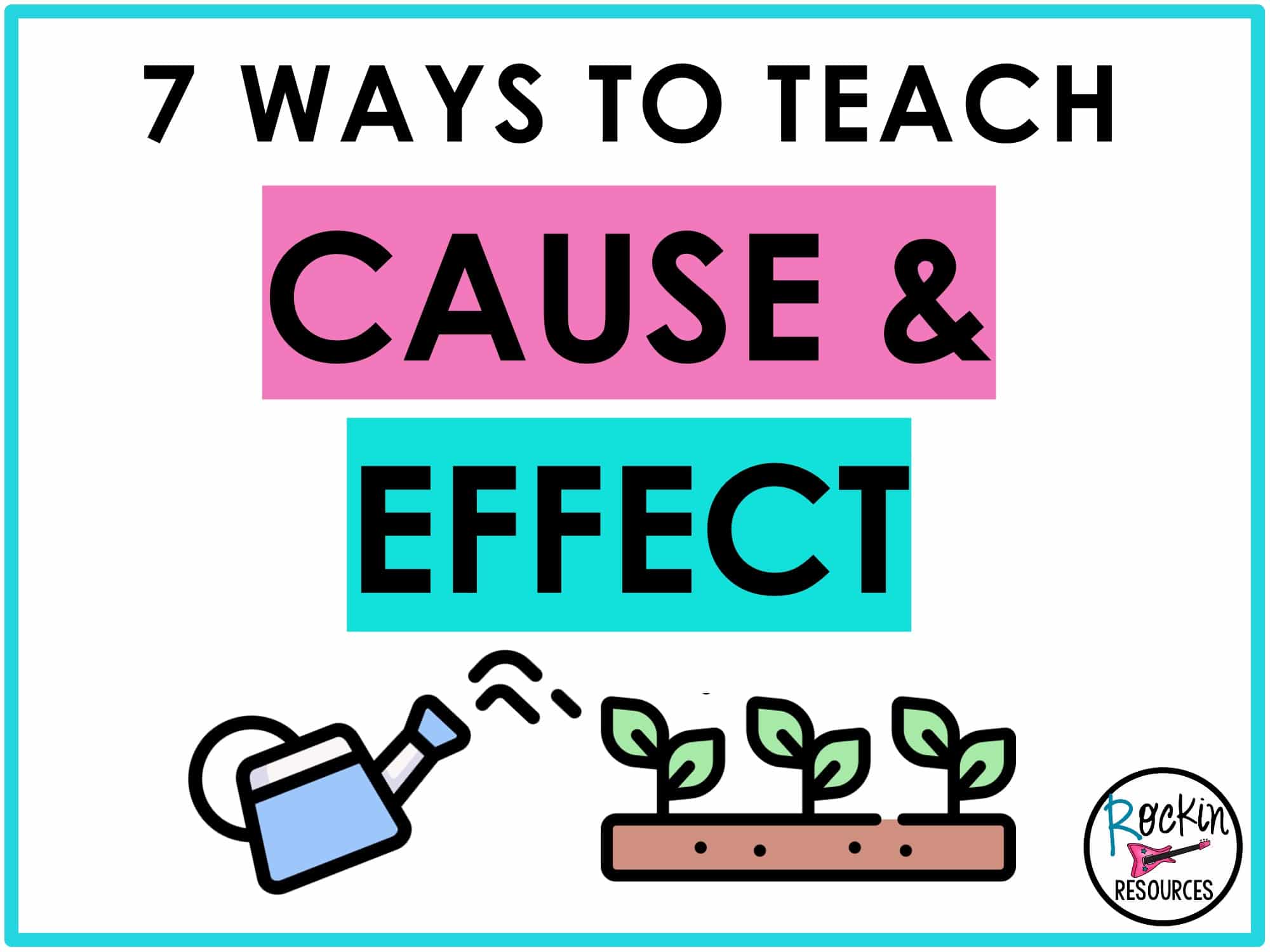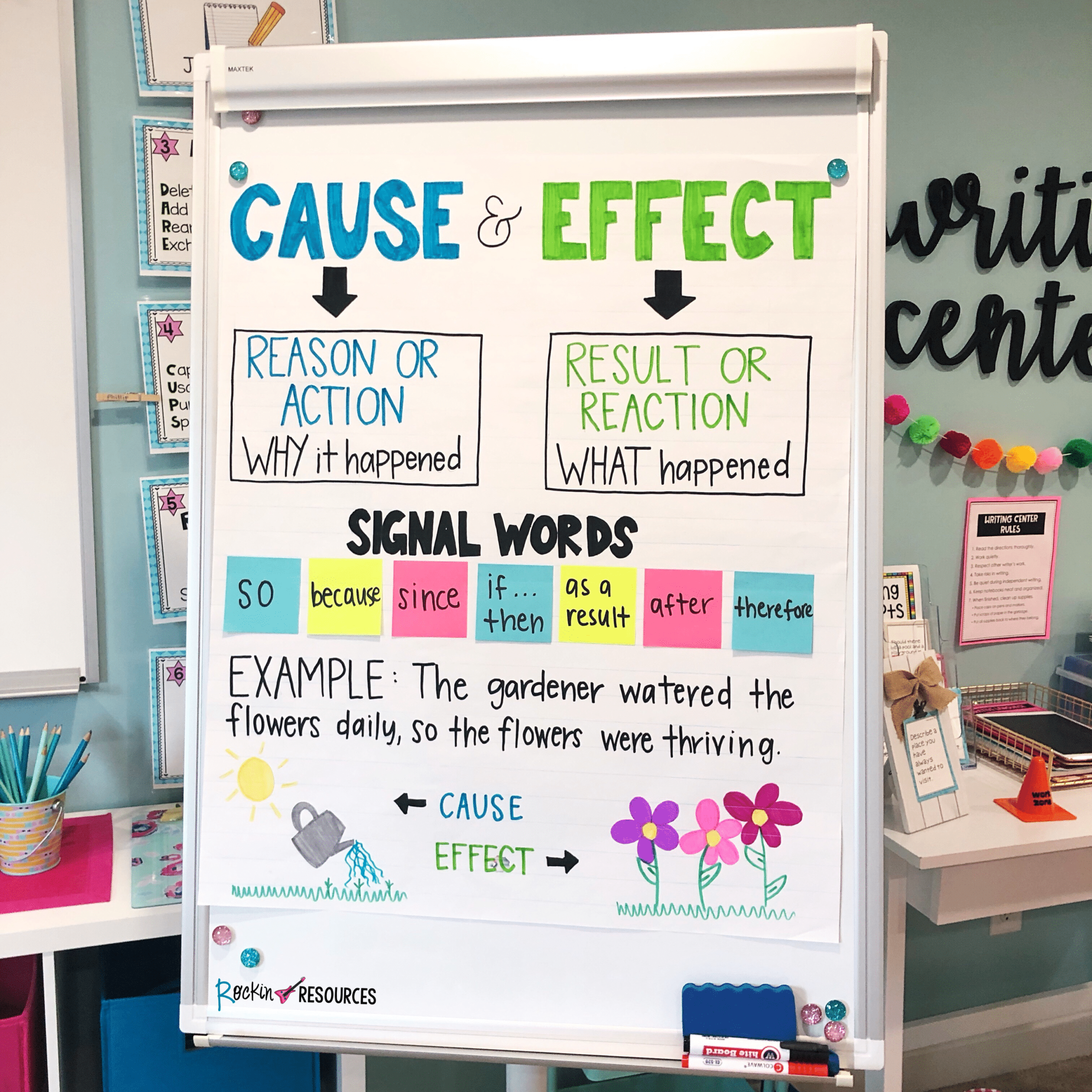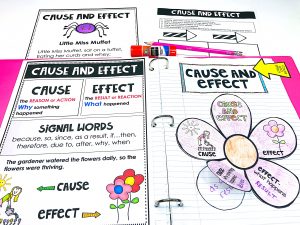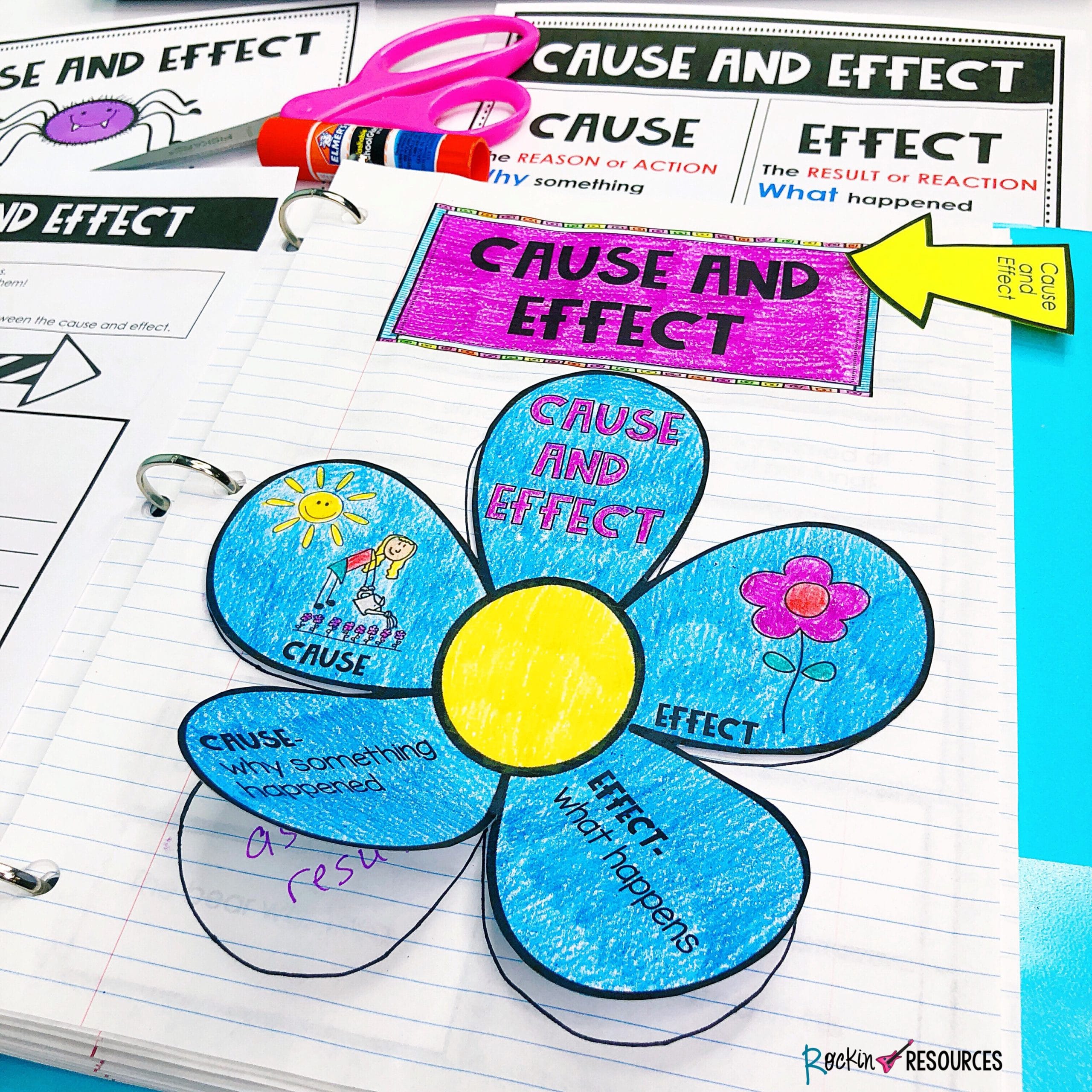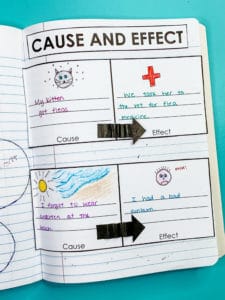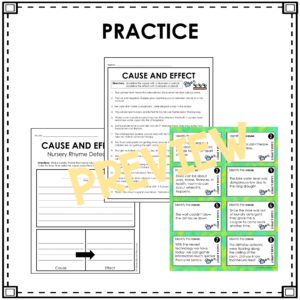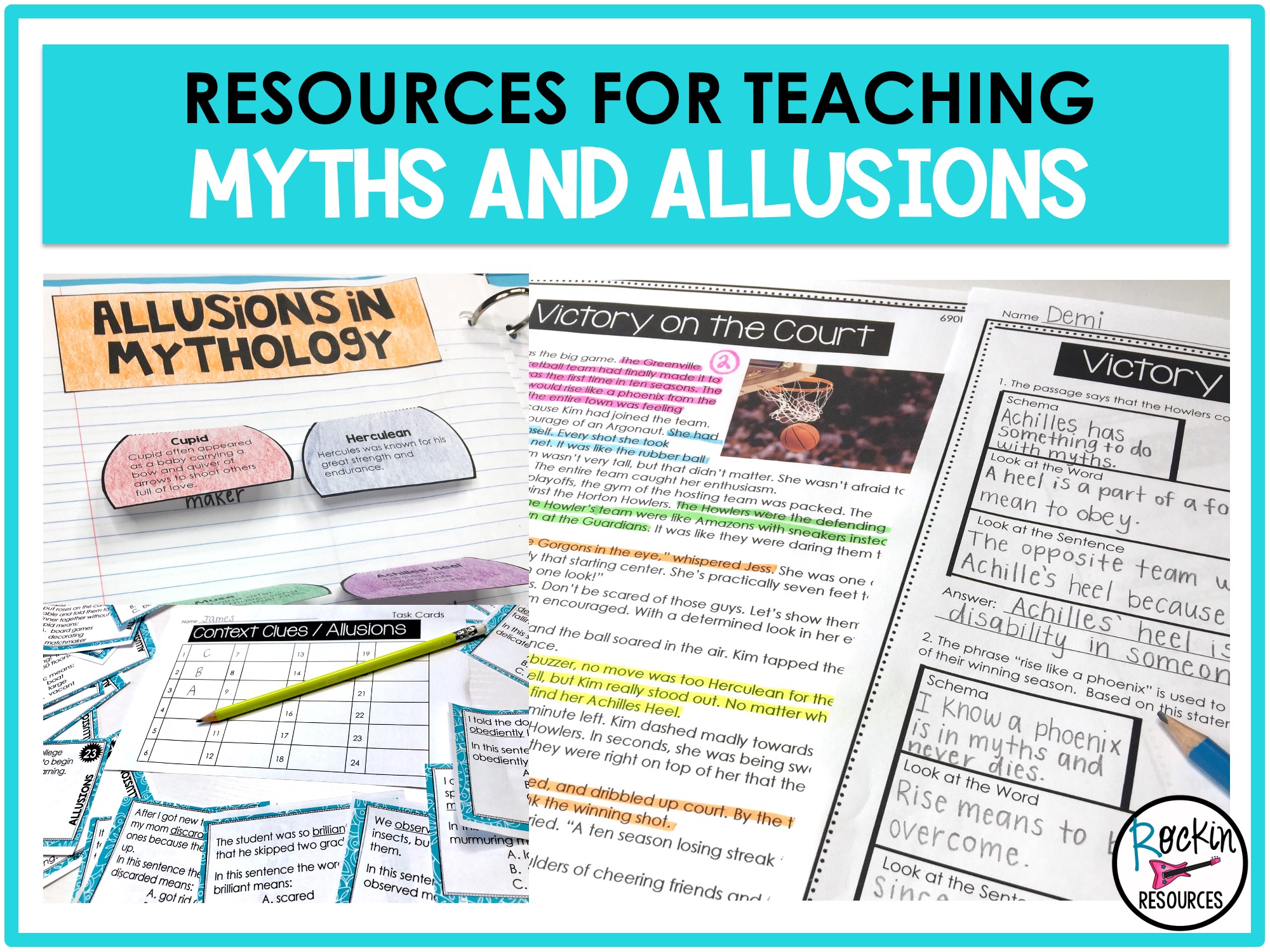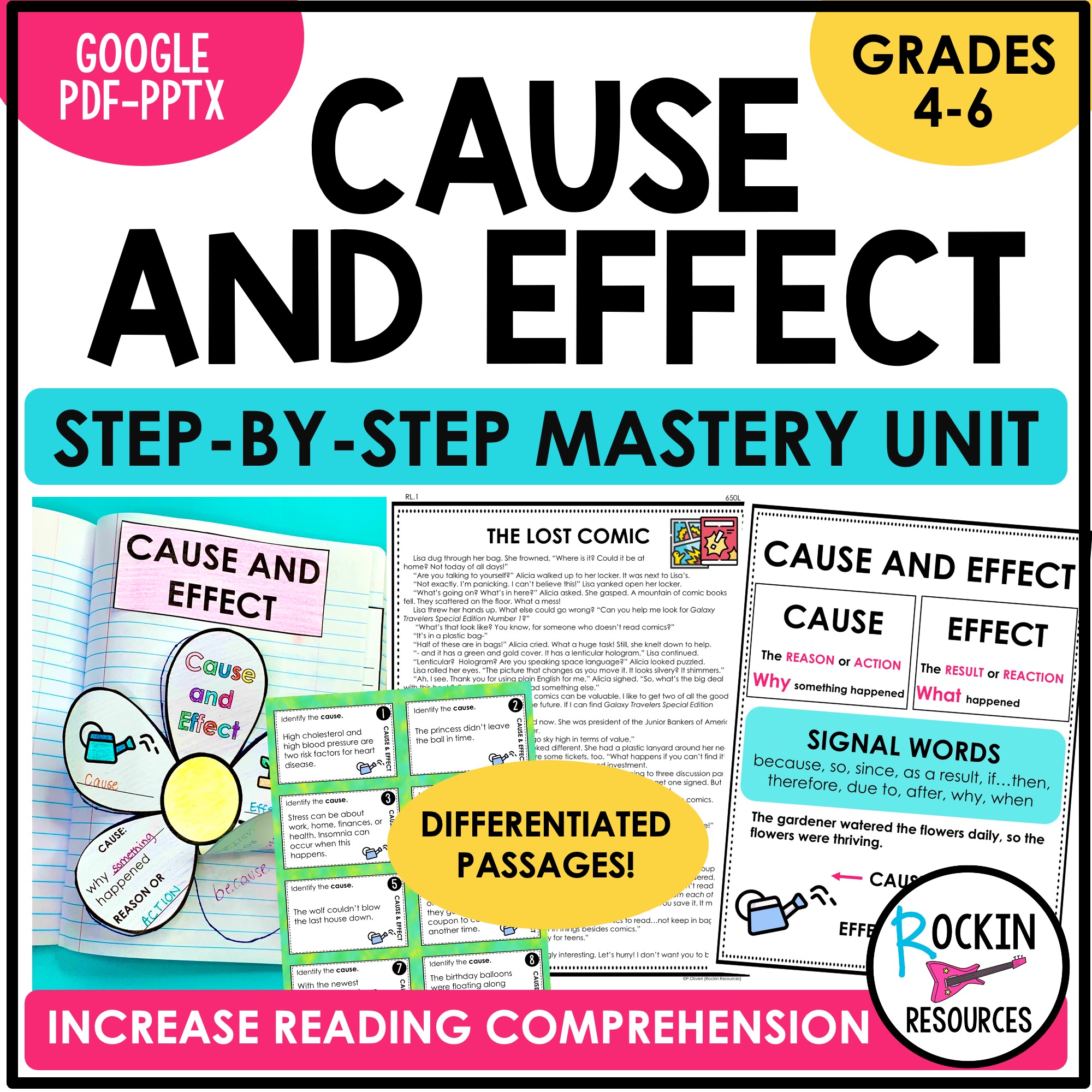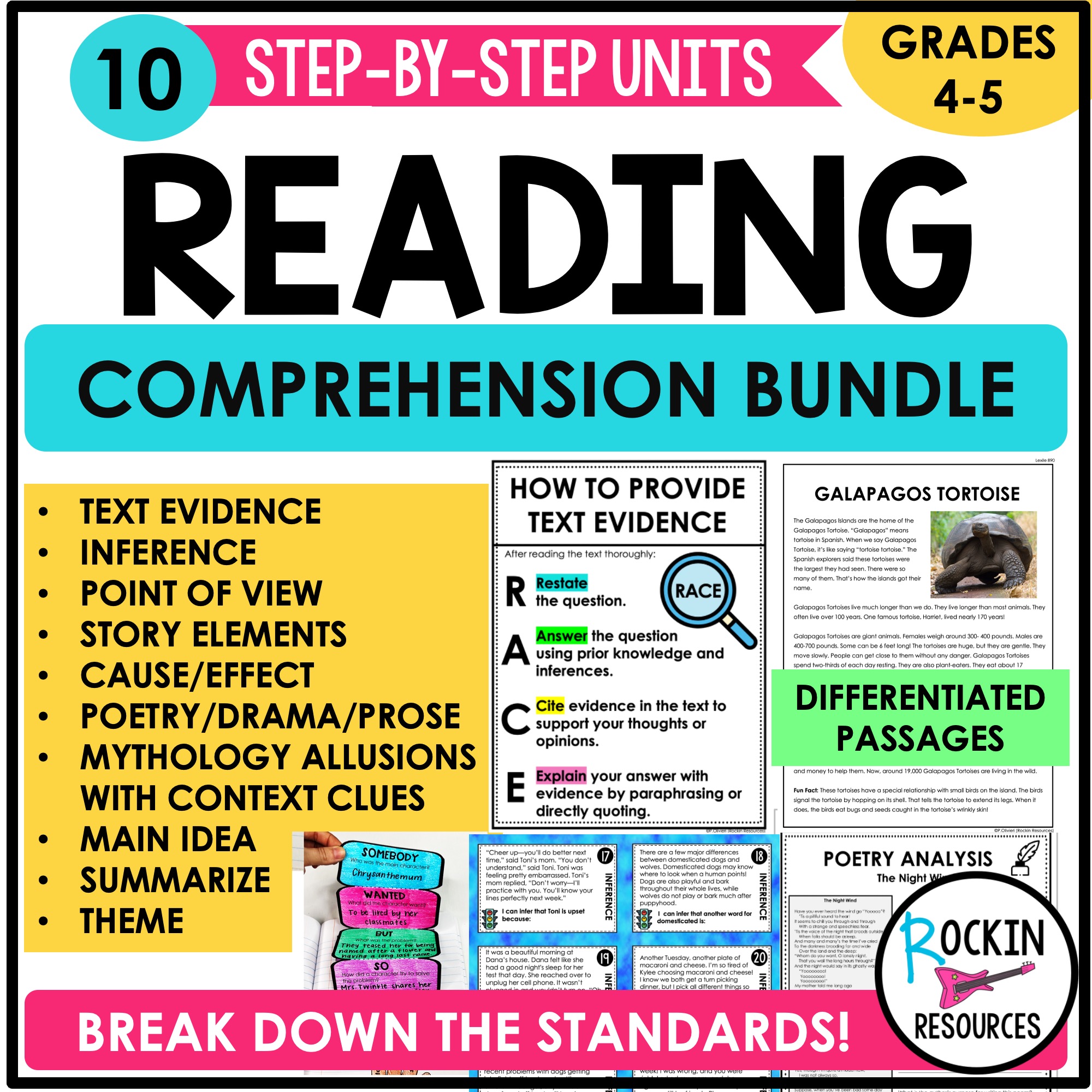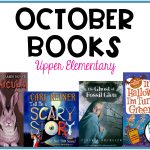Are you looking for ways to teach cause and effect? I love to think outside the box and find ways to teach reading skills in a variety of ways to meet the needs of all learners. I hope you find some ways that are helpful to your students!
Offer an anchor chart.
Both fiction and nonfiction material contain cause and effect relationships.
In Fiction: They are often found in characters.
For example: Maddie didn’t want to go to school because she was being bullied.
The cause is she was being bullied.
The effect is Maddie didn’t want to go to school.
In Nonfiction: They are used to explain many social studies and science concepts.
For example: The battle began because there was a disagreement over taxes.
The cause is a disagreement over taxes.
The effect is the battle began.
Offer mentor text.
Below you will see a fun example using the Nursery Rhyme, Little Miss Muffet. Also show cause and effect in other books.
Suggestions:
Alexander and the Terrible, Horrible, No Good, Very Bad Day by Judith Viorst
If You Give a Mouse a Cookie by Laura Numeroff
Lessons:
1. Photos
Find photos that can show cause and effect. Show them and the cause and effect relationship. Some photos may have more than one!
2. Interactive Notebook
Use the flower example from the anchor chart. Give each student a flower pattern to cut out. Students then need to write notes on the outside and flip open a pedal to write the signal words.
3. Matching
Make cards with cause on one and effect on the other. Mix them up and have students match them.
4. Nursery Rhyme Detective
Invite students to crack the case of finding a cause and effect in a Nursery Rhyme! They will love it! You can either have them research on their own or provide nursery rhymes for them to crack open! I also have a Nursery Rhyme Mystery resource if you are interested! Nursery Rhyme Mysteries
5. Student Samples with Illustrations
Students need to create their own cause and effect sentences and identify the cause and effect. Illustrating helps motivate students as well it deepens their comprehension of the skill.
6. Practice Page with Color-Coding
Allow students to use two different color crayons, pens, pencils, or highlighters when finding the cause and effect in a sentence. Not only is it provides motivation, it is much easier to grade!
7. Task Cards
Who can’t use task cards? Task cards can be used with board games, in centers, or for reteaching!
I hope you found something to use in your classroom! For more ideas check out this AMAZON MENTOR TEXT LIST.
SEE SIMILAR BLOGS:
DISCOVER RELATED RESOURCES:
-
Step-by-Step Reading Skills for Reading Comprehension Bundle 1
Original price was: $83.92.$68.99Current price is: $68.99.

